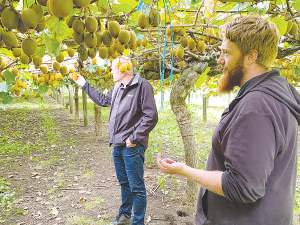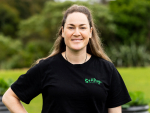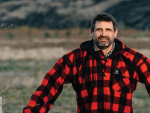New Zealand biological company, Biostart says it now has a product for managing Armillaria in kiwifruit orchards.
Armillaria (Armillaria novae-zelandiae) is a progressively damaging soil fungus that infects the roots of kiwifruit vines. Initially the infected vine loses productivity, with visible canopy and fruit loss, before eventually dying. The disease spreads into orchards from infected roots of other kiwifruit vines, dead tree stumps and willow or pine hedges.
Terracin, which has been registered by ACVM, is the key product in Biostart’s two-phase biological programme for suppressing Armillaria in orchard soils. It says the overall programme works by rebalancing the soil biology because in healthy soils, the natural soil microbes suppress disease-causing fungi and bacteria. In soils with a balanced soil biology, kiwifruit vines are able to withstand disease pressure from Armillaria.
In the first phase, Terracin is applied to the soil in early August. The product contains Bacillus amyloliquefaciens Bs1b, which works by disrupting the existing soil microbial population by producing antimicrobial compounds that suppresses the growth of Armillaria.
In the second phase, Mycorrcin is applied in early spring (budbreak), following the Terracin application and early summer (flowering).
The company claims this restores the beneficial bacteria in the soil, to recreate the balance found in healthy soil after Terracin has done its reset. Mycorrcin is a soil biostimulant that activates naturally occurring beneficial microbes present in your soil, including mycorrhizal fungi.
Trials in five Armillaria infected kiwifruit orchards showed that the Biostart Kiwifruit Programme reduced Armillaria vine deaths by 88%. Over the threeyear trial, 5.6% of the untreated vines had died – whereas only 0.7% of the Terracin-treated vines had died.
Canopy health was also assessed using a canopy disease scoring system. In the Terracintreated vines, at the end of year three, the vine canopy disease scores had reduced by 32%. However, in the untreated vines it had increased by 34%.
This showed that the Armillaria disease impact was worsening in the untreated vines, while the health of Terracin-treated vines were improving and were less affected by Armillaria. In a further trial, yield was restored to previous levels after the vines recovered.
Overall, Biostart says its programme offers a safe and effective way to suppress Armillaria in kiwifruit soils and promote ongoing orchard resilience.











